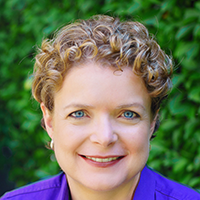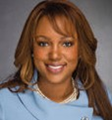A Q&A Discussion with Donella Wilson, Green Hasson Janks and Myeisha Peguero Gamiño, Pacific Clinics
Nonprofits were early advocates for building diversity within their organizations, however there is still work to be done when it comes to board gender diversity. Donella Wilson, Partner and Nonprofit Practice Leader at Green Hasson Janks and President and Chief Philanthropy Officer for GHJ Foundation, recently discussed the barriers to board diversity with Myeisha Peguero Gamiño, Vice President of Public Affairs and Advocacy at Pacific Clinics and a board member of the African American Board Leadership Institute (AABLI).
BRINGING MORE WOMEN ON BOARD
WILSON: You previously held positions at Kroger and JPMorgan Chase & Co., but now you are VP of Public Affairs and Advocacy at Pacific Clinics, what drew you into the nonprofit world?
GAMIÑO: The agency’s mission and nearly 95-year track record of providing mental health and supportive services was compelling. Pacific Clinics is one of the largest behavioral health agencies in Southern California and has helped hundreds of thousands of people and families. Mental health was important before the pandemic and is even more critical now as our community faces unprecedented challenges.
WILSON: What led Pacific Clinics to take diversity into account?
GAMIÑO: Pacific Clinics has been a pioneer in offering culturally responsive services and diversity is one of the organization’s core values. But we know that this work requires an intentional focus to make a difference, so the organization established an Office of Diversity, Equity and Inclusion to ensure that we attract, support and retain a diverse workforce that feels valued, respected, engaged and included.
WILSON: Can you share some practical advice to increase board gender diversity?
GAMIÑO: Make it a priority to find women and those with diverse backgrounds and hold the nominating committee accountable. It can be a barrier to only look at candidates that come from internal networks.
Exceptional boards recognize that diversity is essential to an organization’s success and is in a stronger position to be in touch with community needs. I recommend reaching outside of your networks or bring in external support to help source candidates. Also, expand search criteria. Look for skilled candidates that might not be straight from the C-suite. While experienced board members offer wisdom, there is still a systemic barrier at many companies in relation to promoting talented women to these positions. Instead, define the necessary skill set. For instance, if the board needs someone who is skilled in finance, look for someone with that skill.
BUILDING AND RECRUITING FOR AN INCLUSIVE BOARD
WILSON: Term limits can also help foster diversity by creating healthy turnover. Having a bench of talented committee members, who can become governing board members, is one strategy to achieving diversity. Another is to consider a young professionals board. For example, the Downtown Women’s Center established a Leadership Council, that serves as a pipeline for future board members and advocates. Do you have other suggestions for improving the recruitment and onboarding processes for boards to make them more inclusive?
GAMIÑO: I suggest partnering with an external organization, such as AABLI, for support. They can provide training on implicit bias and access to board candidates through AABLI’s extensive database of experienced professionals.
BOARD ENGAGEMENT
WILSON: Leveraging the skills, knowledge and experience of each individual board member is important, however providing board members opportunities to challenge themselves in different ways is equally important. At the start of my board service with DWC I was not immediately asked to join the Audit or Finance Committees, instead I was invited to join their Capital Campaign Committee, which was interesting and rewarding. Over the years I’ve been given the opportunity to contribute in different ways, increasing my commitment and engagement.
GAMIÑO: I will add that going through the AABLI program, several years ago, gave me the knowledge and understanding to identify what I am passionate about, which helped focus my nonprofit board participation.
WILSON: Do you have one final takeaway on the importance of a diverse board?
GAMIÑO: Diversity is a business imperative that creates a strategic advantage. We can all advance together.
If you have any questions, GHJ’s experienced nonprofit team can provide the tools your organization and board needs to succeed in these very challenging times.

Donella Wilson, CPA, is the partner leading GHJ’s Nonprofit Practice and has 25 years of public accounting experience and works exclusively in the nonprofit sector. She is also president and chief philanthropy officer for GHJ Foundation, the Firm’s vehicle for purposeful and proactive giving to the community. Donella was recognized as a 2018 “Women Executive of the Year” and a 2017, 2018 and 2019 “Most Influential Women in Accounting” by LABJ. She also serves on the Board of Directors of the Downtown Women’s Center.

Myeisha Peguero Gamiño is the vice president of public affairs and advocacy at Pacific Clinics, where she directs the strategy driving the clinics’ public policy, communication and marketing efforts. With nearly 20 years of experience in philanthropy and public affairs, as well as
community and government relations, Gamiño has held related roles at Fortune 500 companies. She is active on the board of the Boys and Girls Clubs of Metro Los Angeles, a city commissioner and is an AABLI alumna, Class 5.

